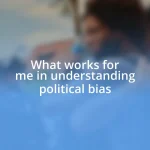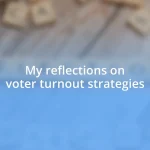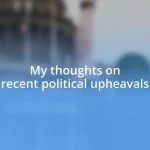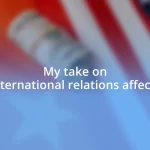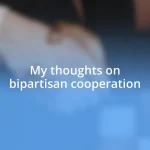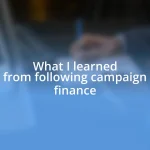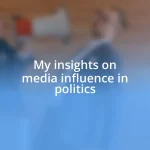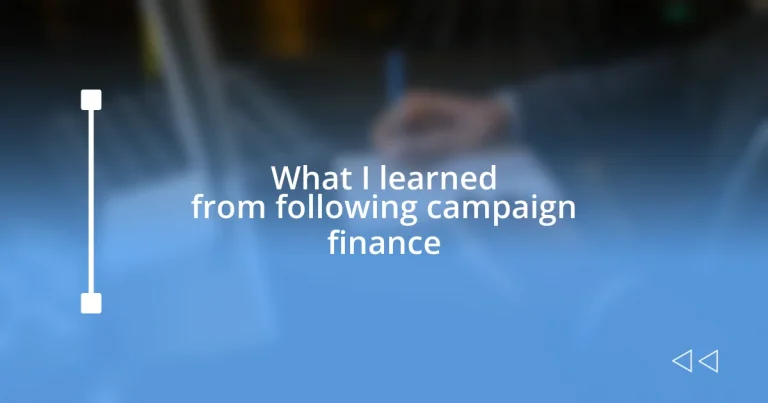Key takeaways:
- Transparency in campaign finance is essential for voter trust and informed decision-making, as undisclosed funding sources can influence candidate priorities.
- The growing reliance on super PACs and significant financial backing raises concerns about equity in elections, overshadowing the merit of ideas and qualifications among candidates.
- Reforms such as stricter disclosure laws, public financing of campaigns, and limiting super PAC influence could enhance the integrity of the democratic process and empower grassroots voices.
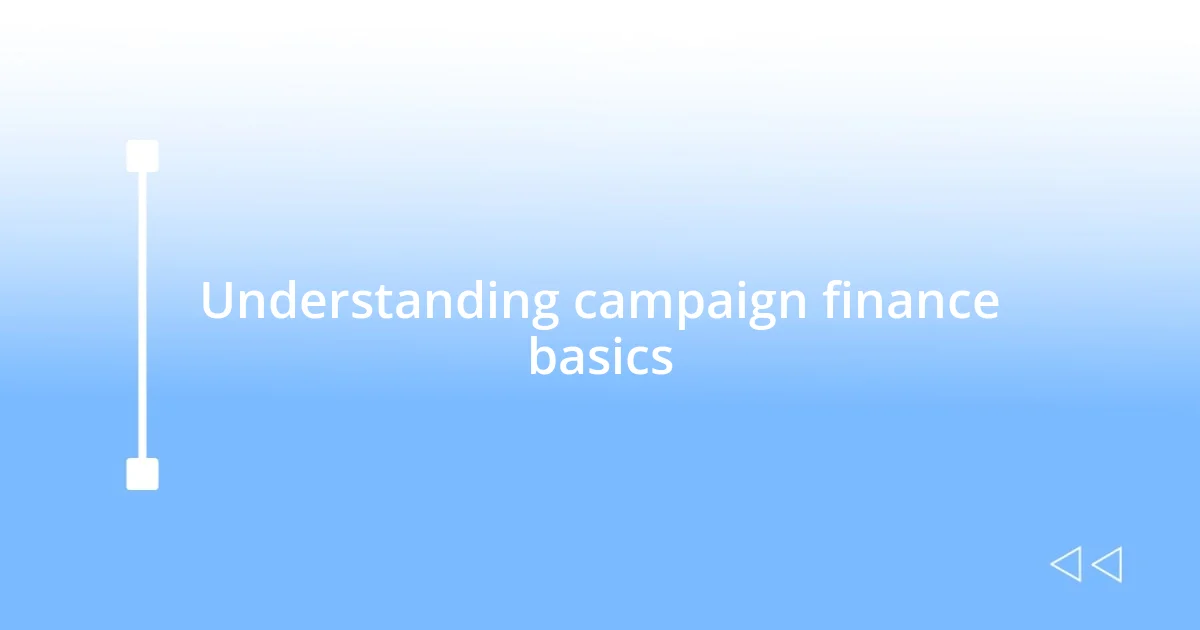
Understanding campaign finance basics
Understanding campaign finance can feel like navigating a maze, especially when you consider the different sources of funding. I remember the first time I delved into this topic—I was stunned to discover that individuals, corporations, and even political action committees, commonly known as PACs, play significant roles in financing campaigns. Isn’t it fascinating how these funds can influence not only the candidates’ strategies but also the issues they prioritize?
Campaign finance laws aim to create a level playing field, but they can also be quite complex. For instance, there are limits on how much individuals can contribute, yet super PACs can raise unlimited amounts from anyone. It made me reflect on the balance between free speech and ensuring fair competition in elections. Do you think that large financial contributions compromise the democratic process, or do they simply empower candidates to communicate their messages more effectively?
Moreover, transparency is a crucial element of campaign finance. As I followed various campaigns, I found it concerning how often voters are left in the dark about where the money is coming from. The more I learned, the more I realized how critical it is for voters to understand not just the candidates’ political positions, but the financial backers supporting them. Does it bother you that the public usually only sees the end results—ads and speeches—without knowing the funding behind them?
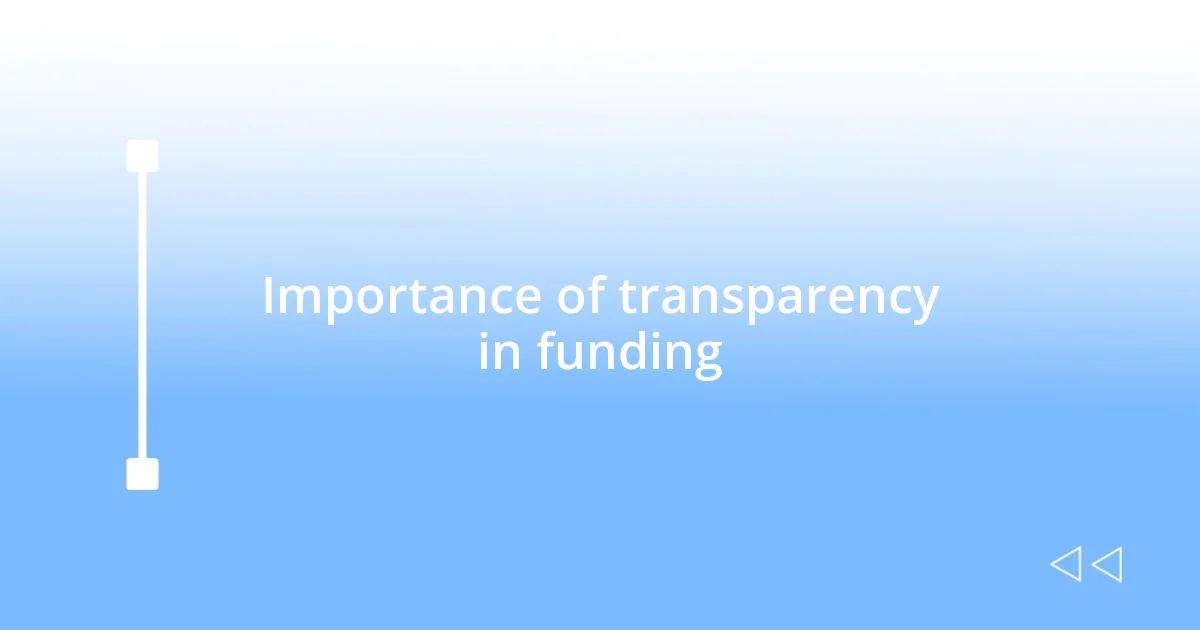
Importance of transparency in funding
When I think about the importance of transparency in campaign funding, I can’t help but recall a local election where I supported a candidate. There were vibrant ads and passionate speeches, but I became uneasy when I discovered that a significant portion of the funding came from an undisclosed super PAC. It struck me that without transparency, voters like me were left unaware of potentially conflicting interests that could shape the candidate’s decisions once in office. Isn’t it unsettling to realize that our trust in candidates could hinge on hidden financial ties?
Transparency in campaign financing fosters informed decision-making among voters. Here’s why it truly matters:
- Accountability: Candidates are more likely to be responsible for their actions when their funding sources are public knowledge.
- Voter Trust: Clear insights into who backs a candidate can enhance public trust, making voters feel more confident in their choices.
- Informed Choices: Understanding the funding can help voters evaluate whether a candidate’s positions align with their interests or if they are swayed by specific donors.
Not being privy to these details can lead to misplaced trust. That feeling of uncertainty gnawed at me every time I saw that candidate speak, making me wish for greater openness in these processes.
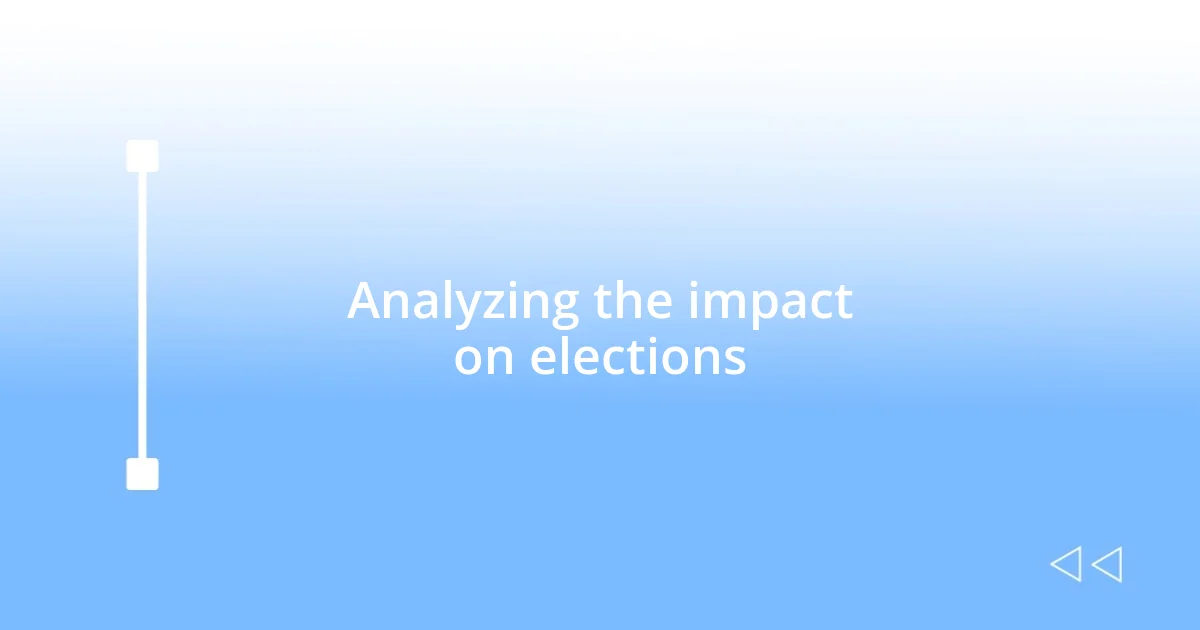
Analyzing the impact on elections
When analyzing the impact of campaign finance on elections, I can’t help but think of how funding shapes not only the candidates but the very fabric of our democratic process. For instance, I once followed a gubernatorial race where the candidate with the deepest pockets dominated visibility. Their ads were everywhere—TV, social media, billboards—while their opponent struggled to be heard. It made me wonder, does sheer financial might overshadow the merit of ideas and qualifications?
Moreover, the disparity in funding often leads to significant biases in who gets noticed and who fades into obscurity. Reflecting on several House races I’ve observed, candidates with modest financial backing often struggle to connect with voters, while those backed by affluent donors tend to dominate discussions and even policy debates. It’s disheartening because it raises questions about the quality of representation. Are voters truly choosing their leaders, or are they merely falling for the candidates with the flashiest campaign?
This financial divide also manifests in voter perceptions. As I looked deeper into these elections, I noticed how high-profile endorsements and financial contributions can create an illusion of electability. I found myself questioning candidates who didn’t have glitzy support, thinking, “Are they viable?” This realization has profoundly shaped my understanding of how crucial equitable access to funding is for a truly representative electoral process.
| Impact of Campaign Finance | Examples |
|---|---|
| Visibility and Name Recognition | Candidates with larger funding sources tend to have more ads, increasing their visibility among voters. |
| Policy Influence | Wealthy donors often sway candidate platforms, leading to policies that may benefit them disproportionately. |
| Voter Perception | The financial backing of a candidate can create perceptions of viability, affecting public support. |
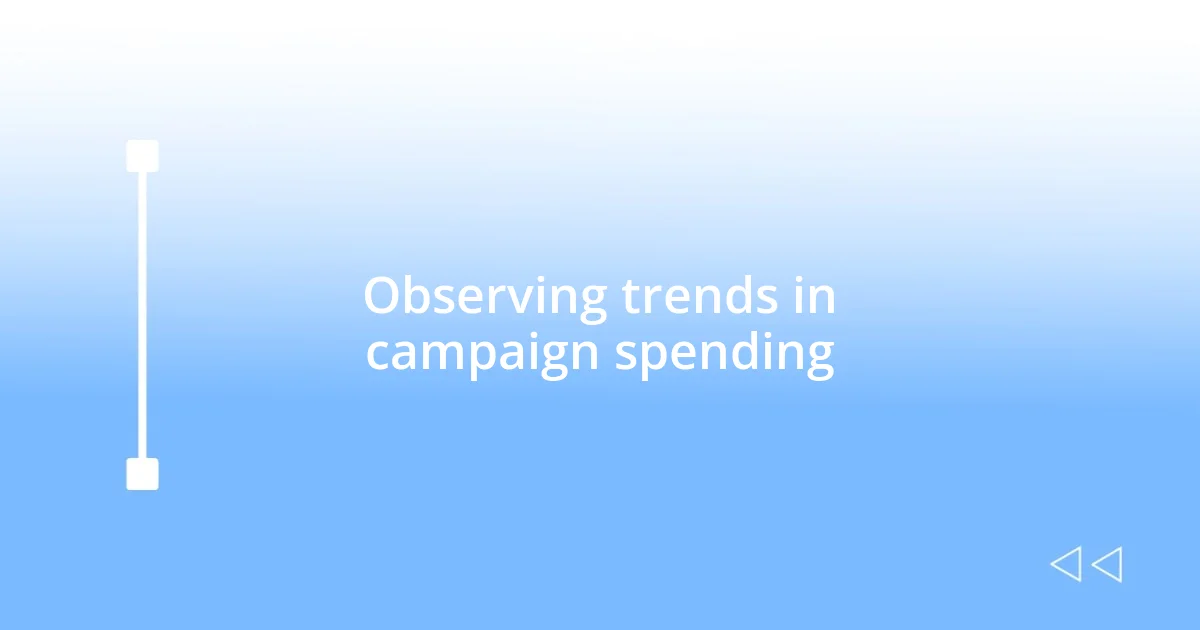
Observing trends in campaign spending
As I delved into the landscape of campaign spending, I was struck by how clearly trends emerged over time. During a recent election cycle, for example, I noticed a significant uptick in spending on digital ads compared to traditional media. This shift reflected a growing understanding among candidates that younger voters engage less with standard campaign methods. Seeing this change made me think — are candidates finally learning to adapt to our evolving media landscape?
In another instance, I observed a striking intersection between grassroots fundraising and high-dollar donations. There was a candidate who managed to mobilize small contributions from passionate supporters while simultaneously attracting substantial investments from corporate sponsors. This dual approach left me pondering the balance between genuine community support and the allure of wealthy backers. How do candidates reconcile the expectations of their grassroots base with the demands of their powerful donors?
Finally, an unsettling trend I spotted involved the increasing reliance on super PACs, which are independent committees that can raise unlimited funds for campaigns. I remember feeling a sense of frustration watching one candidate run solely on the back of an aggressive super PAC campaign. It felt as if the voice of the ordinary voter was being drowned out by the clamor of big money. Isn’t it troubling when the political landscape is influenced more by financial clout than by the principles and policies that candidates promise to uphold? This pattern of spending is not just a statistic; it’s a narrative of power, influence, and the very essence of our democracy.
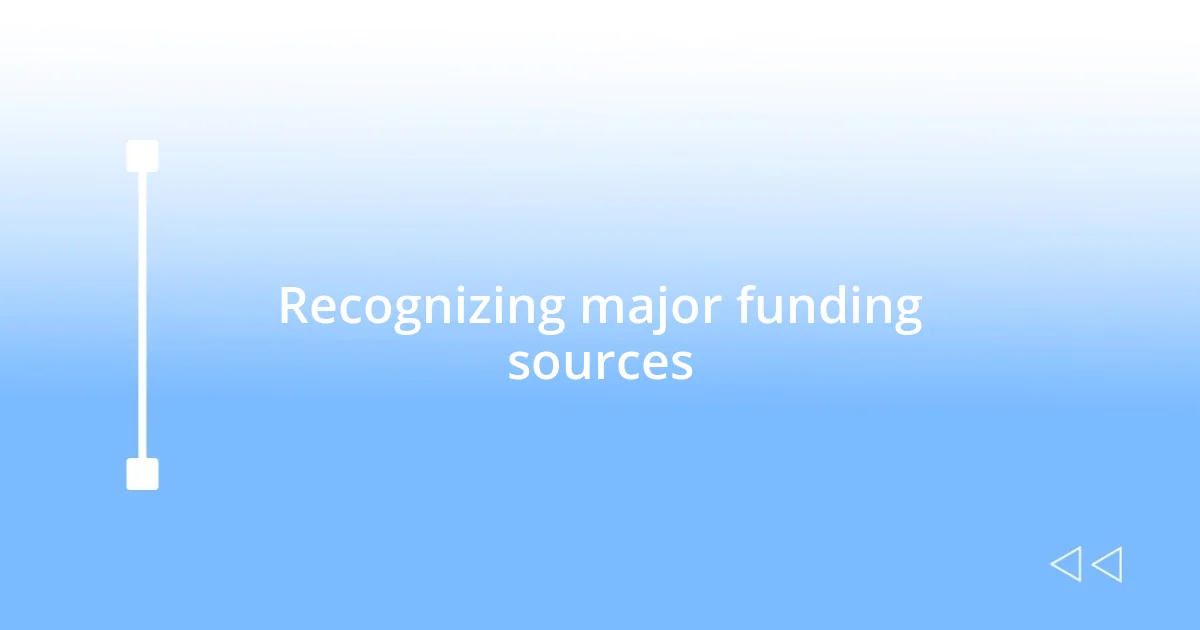
Recognizing major funding sources
Recognizing major funding sources is crucial in understanding how power dynamics play out in elections. One memorable experience was when I attended a town hall meeting for a local candidate who had practically no funding to campaign with. It was refreshing to hear their grassroots ideas, but the stark reality hit me when only a handful of people attended. I couldn’t help but wonder: if these voices matter so much, why aren’t they amplified through funding and resources?
As I studied various campaign finance reports, I realized just how influential large donations can be. A specific incident stood out when I noticed that a candidate’s campaign suddenly surged after receiving a hefty contribution from a well-known corporate donor. It made me ponder—are we really supporting individual candidates, or are we unknowingly endorsing the agendas of the donors behind them? Reflecting on this made me more aware of how essential it is to scrutinize funding sources if we want genuine political discourse.
Throughout my observations, I found that the type of funding can tell us a lot about a candidate’s priorities. For instance, a candidate heavily funded by healthcare interests may prioritize legislation that benefits that sector, rather than the broader public health welfare. This insight struck me during a discussion with a group of friends; we speculated on how these hidden influences shape policies. It was revealing to see how, without recognizing these funding sources, we could easily fall into the trap of supporting candidates without truly understanding what they stand for.
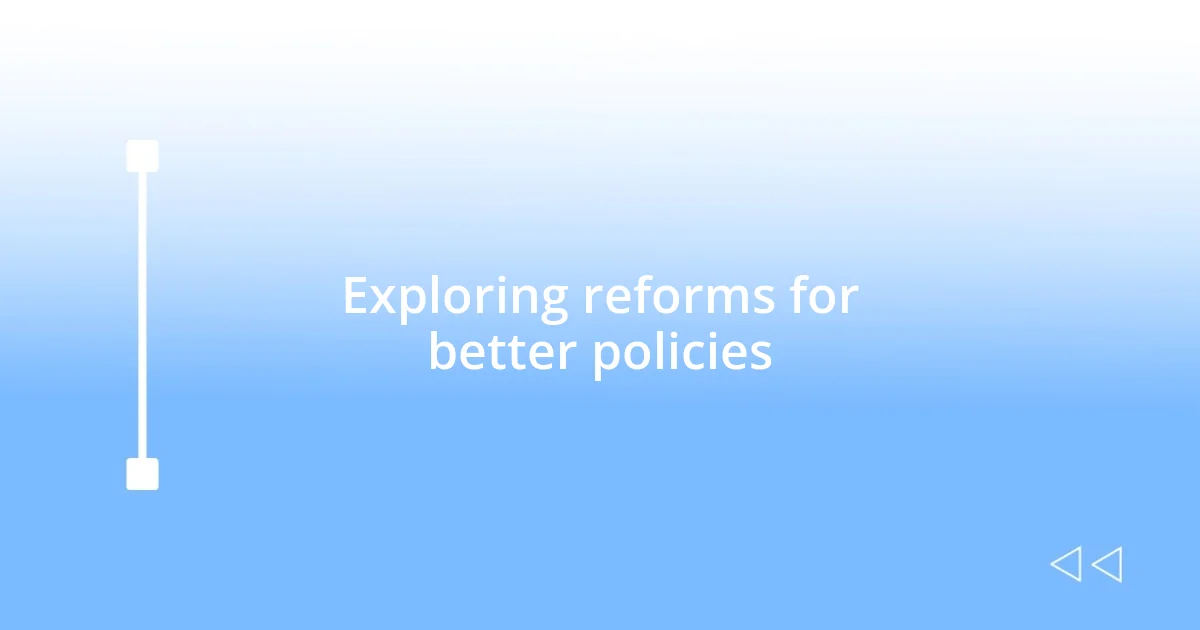
Exploring reforms for better policies
When considering reforms for better campaign finance policies, I’ve often found myself reflecting on the role transparency plays. I recall attending a community forum where a panel discussed potential policy changes. Hearing spirited discussions about implementing stricter disclosure laws for campaign donations sparked something within me. Why should we not know who is truly backing our candidates? This could empower voters and help them make more informed decisions, ultimately leading to a healthier democracy.
Moreover, the idea of public financing of campaigns has crossed my mind frequently. I remember chatting with a passionate friend who believed that everyone should have a fair chance to run for office, regardless of financial backing. Imagine matching small donations with public funds to amplify grassroots voices! This thought left me with a sense of hope, yet I also wondered: would candidates truly prioritize the needs of their constituents over the deep pockets of special interests? Striking that balance seems crucial for the integrity of our political system.
Lastly, I often ponder the possibility of limiting the influence of super PACs. My experience attending a rally for a candidate, only to find 90% of the advertising driven by an outside group, felt disheartening. It raised the question: how can we have real political competition when outside money dictates narratives? I’ve come to believe that effective reforms should directly address these challenges, fostering an environment where policies are shaped by the electorate rather than by powerful, anonymous forces.
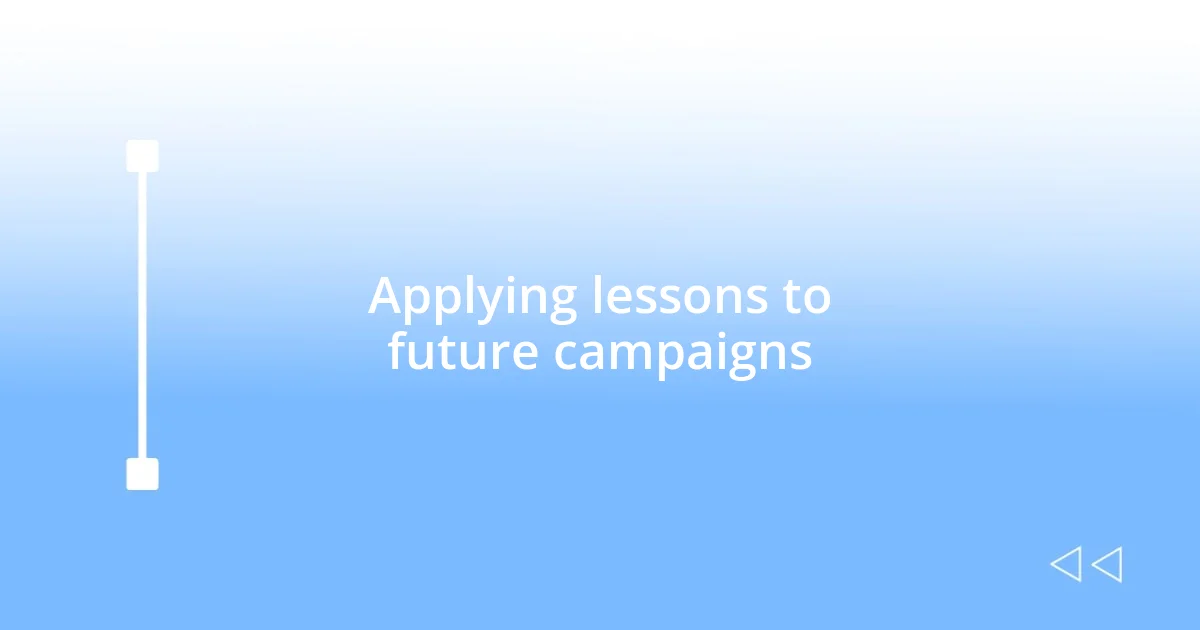
Applying lessons to future campaigns
As I look towards future campaigns, one lesson I’ve learned is the importance of grassroots mobilization. I once participated in a local campaign where volunteers knocked on doors to connect personally with voters. It struck me how much more resonant those one-on-one conversations were compared to any slick advertisement. Don’t you think that personal engagement can create a more authentic connection between candidates and constituents?
Another insight is the need for effective messaging around campaign finance itself. During a forum, I witnessed a candidate struggle to explain their funding sources while trying to avoid a loaded question about corporate donations. It made me realize: voters deserve clarity. If candidates can address funding transparently and demonstrate how it aligns with their principles, it could truly empower voters to make choices they believe in. How might a better-informed electorate influence the outcome of future elections?
Lastly, I’ve come to appreciate the potential of digital platforms in leveling the fundraising playing field. After exploring some innovative campaigns, I was amazed to see how candidates raised small donations from thousands of supporters online. This decentralized approach could inspire new candidates with fresh ideas and diverse backers. What if future campaigns focused less on mega-donors and more on amplifying these small but powerful contributions? It certainly excites me to envision a political landscape where everyone feels they can participate in shaping the future.
